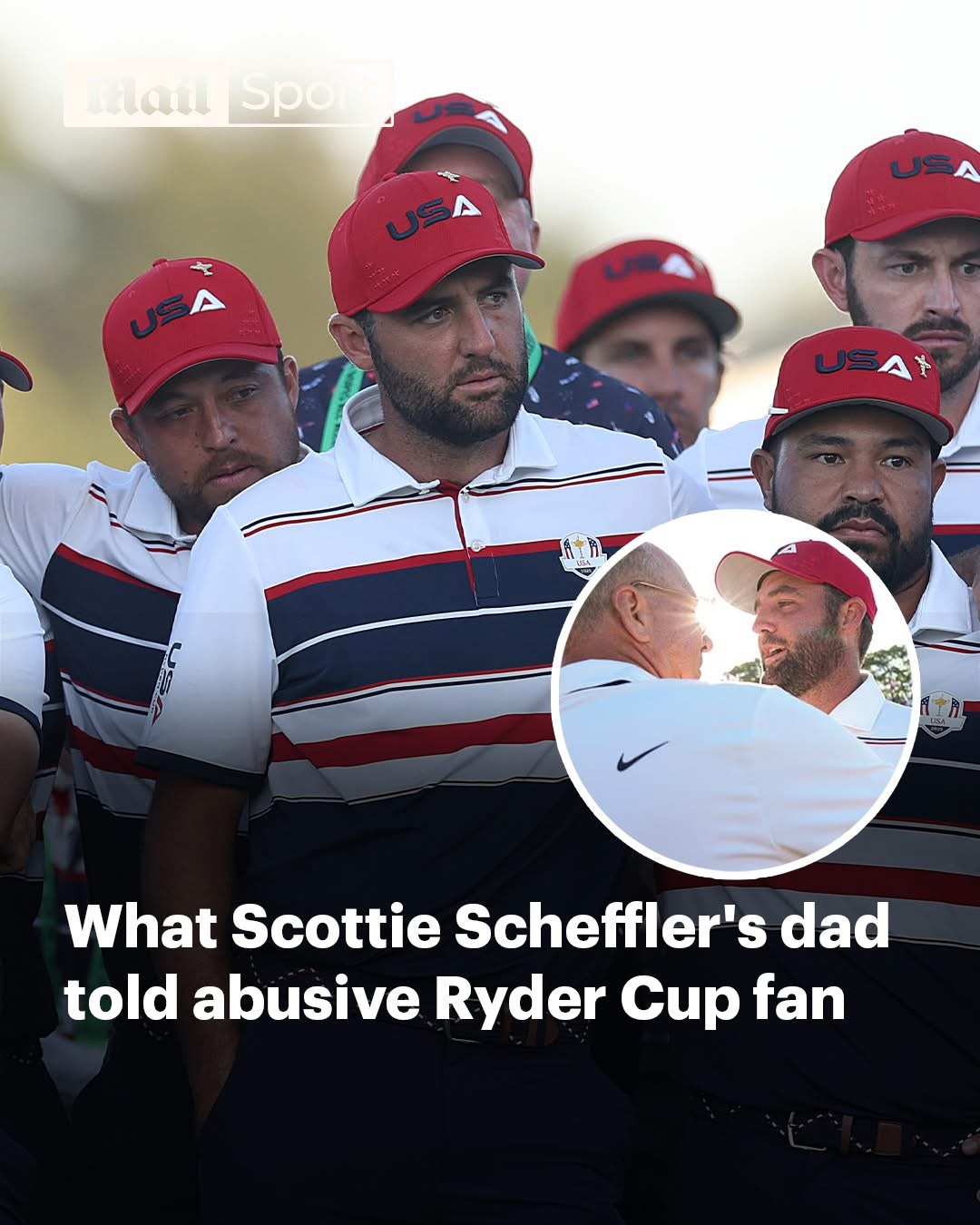The Ryder Cup has always been known for its fiery atmosphere, passionate supporters, and the electric tension between Team Europe and Team USA. But this year’s contest also brought moments where emotions boiled over—not just on the course, but among the galleries. One such incident involved World No. 1 Scottie Scheffler’s father, Scott Scheffler Sr., who reportedly confronted an abusive fan during one of the most heated sessions of play.
A Father’s Protective Instinct
Witnesses claim the altercation occurred on the second day of competition, when tensions were already running high after a string of dramatic matches. According to those nearby, one spectator crossed the line by shouting a series of hostile remarks at Scottie, comments that went beyond the spirited banter the Ryder Cup is known for.
Scott Scheffler Sr., who has been a familiar and supportive figure at his son’s tournaments since his early days on the junior golf circuit, did not sit idly by. Rather than letting the heckling continue, he reportedly turned to the fan and told him firmly:
“That’s my son out there—show him some respect. Cheer for your team, but don’t tear people down.”
Applause From Nearby Fans
Eyewitnesses said the exchange was brief but powerful. The heckler initially appeared surprised to be called out, but Scheffler Sr.’s words seemed to silence the situation quickly. Some surrounding spectators even clapped in support of the elder Scheffler, acknowledging both the protective fatherly instinct and the reminder that golf still prides itself on sportsmanship.
While the Ryder Cup is unlike any other golf event—with chants, singing, and even jeers commonplace—there has long been an unwritten rule that personal abuse crosses the line. For many, Scheffler Sr.’s intervention was a timely reminder of that boundary.
The Pressure Scottie Faced
Scottie Scheffler himself endured an intense week. Coming into the event as the world’s top-ranked player, expectations from American fans were sky-high. But with every shot scrutinized and the crowd dynamic amplified by national pride, the Texan faced a torrent of emotions both on and off the course.
Players often speak about trying to block out noise, but the Ryder Cup has proven particularly challenging for even the calmest competitors. Having a parent defend him in such a direct way underscored just how deeply the environment can affect players’ families too.
A Broader Conversation About Fan Behavior
The incident has sparked wider conversations about where the line should be drawn at major sporting events. Unlike football or basketball, golf is steeped in traditions of respect and etiquette, yet the Ryder Cup has always blurred those boundaries. While most fans relish the spirited chants and rivalrous atmosphere, instances of hostility serve as a reminder that passion should not spill into abuse.
Prominent figures in golf media praised Scheffler Sr.’s response, saying it balanced firmness with dignity. One commentator remarked:
“You can root hard for your team without belittling someone else. Scottie’s dad handled it exactly how you’d want a parent to handle it—he defended his son, but without escalating the situation.”
Family at the Core of Scheffler’s Journey
Scottie Scheffler has often spoken about the importance of his family in his career. From his father carrying his golf bag in his early years, to his mother helping him balance academics and sport, the Schefflers have been a close-knit support system. The Ryder Cup incident was simply another chapter in the ongoing story of that loyalty and bond.
For many fans watching, it was a powerful reminder that beyond the bright lights of golf’s biggest stage, players are still sons, brothers, and husbands—human beings whose families feel the weight of every cheer and jeer.
Conclusion
While the Ryder Cup thrives on noise and energy, Scottie Scheffler’s father drew a firm line in the sand against abuse. His words, “show him some respect,” resonated far beyond one heated moment—they reinforced the values that the game of golf aspires to uphold, even amid the most emotionally charged battles.
And as the dust settles on another Ryder Cup, perhaps that short but significant exchange will linger in memory as a reminder: passion should lift the sport, not drag its players down.









